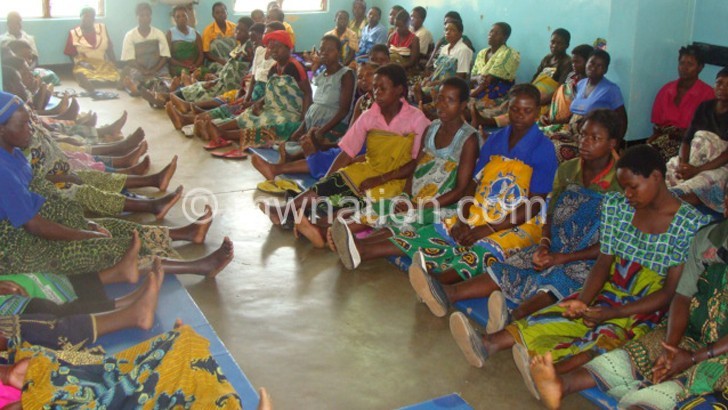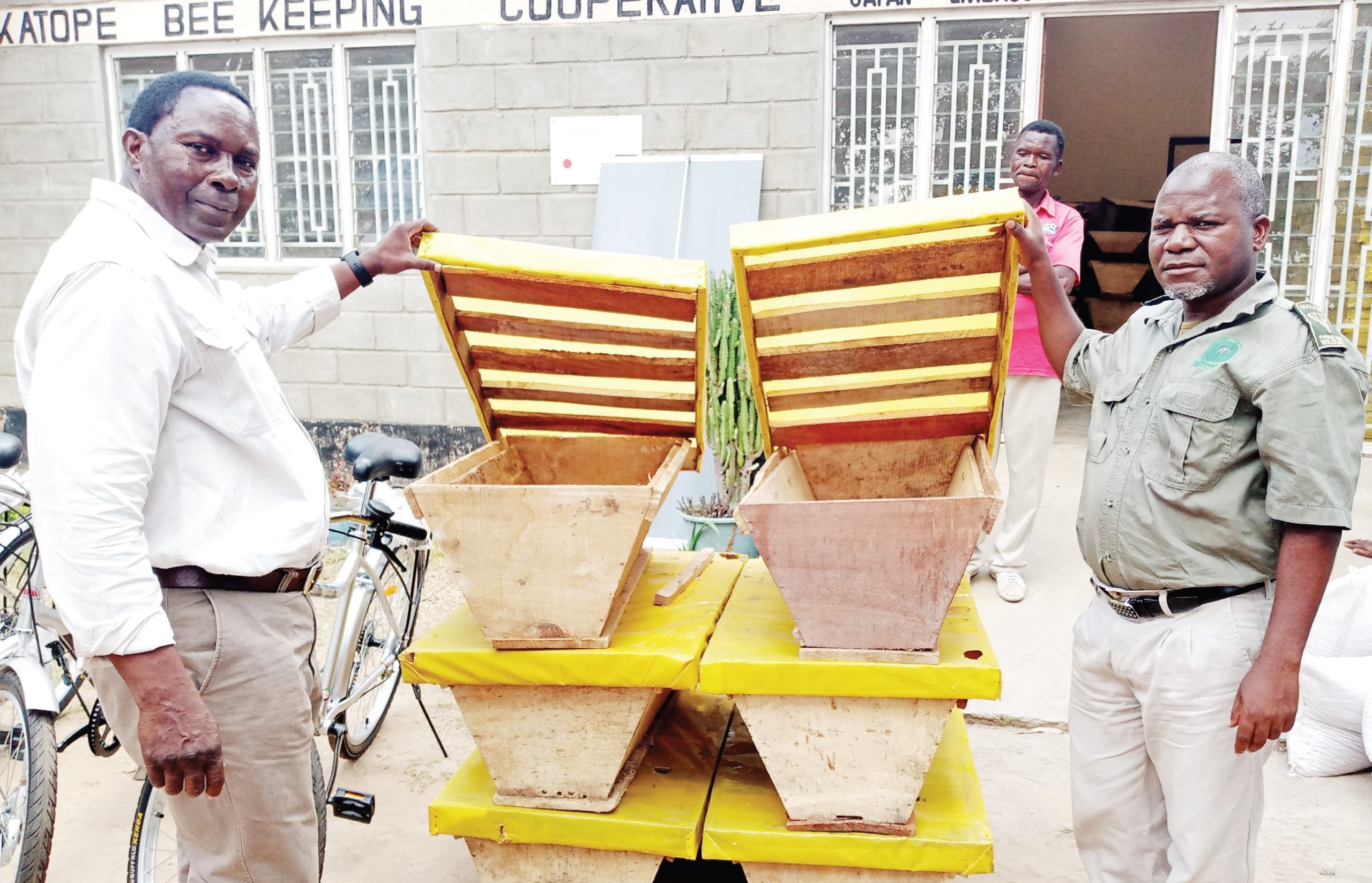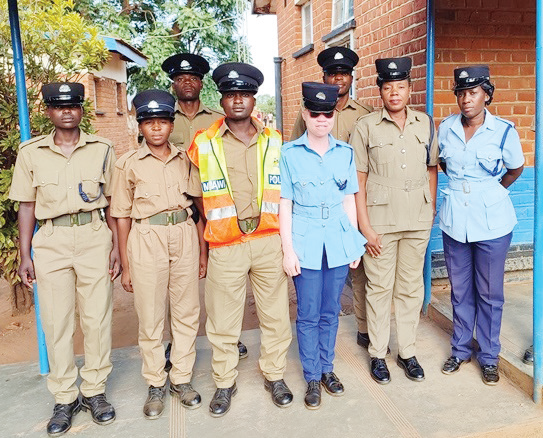Will medical humanities solve some health problems?
Have you ever gone to a public hospital and left disappointed with the way medical practitioners treated you? Or have you ever been a guardian in hospital and felt the treatment rendered to your husband, wife, child, parent or relative was not satisfactory?
Well if you have never been to a public hospital whether as a patient or guardian, for those who have ever been, it is common to hear them complain about one thing or the other against nurses, doctors or support staff.

The hospital, as unavoidable as it is, remains one place that needs transformation in the way it handles sick people and guardians, some people contend.
One woman (name withheld) who went to a public hospital early December this year to deliver, met the shock of her life when nurses on duty kept on ignoring her during the night of her labour.
“When my guardian asked the nurse on duty, she sarcastically responded I was not yet ready for delivery. Meanwhile, the pains were becoming more excruciating,” she recalls.
Yet, the said nurse on duty was allegedly chatting with friends on WhatsApp, neglecting her duty to assist the woman writhing with labour pain.
“It was after an exchange of bitter words with the nurse that I was finally assisted,” she said.
Complaints such as these have been there before. For those who know about the hospital’s administration have taken their complaints to the facilities’ ombudsman, instituted to handle such cases.
“However, the majority of people who people who seek healthcare in public facilities are not educated to know their rights; hence, they don’t even report issues of negligence or maltreatment to relevant offices,” says James Mbendera from Ndirande Township in Blantyre City.
In recent years, stories have gone round that some women experience negligence in operating theatres during delivery where medical practitioners forget gloves or gauge in their abdomen or remove their womb without their consent.
The Office of the Ombudsman after investigating the reports this year released a damning report Woes of the Womb which showed that poor conditions in public hospitals are resulting in many expectant mothers having their uteruses removed during child birth.
The report faulted the Ministry of Health for failing to provide sufficient staff for Obstetrics and Gynecology departments although authorities said efforts are being made to address the matter.
Why medical humanities?
In a bid to repair the relationship between patients or guardians and health practitioners, some experts in the medical field and humanities are advancing what they call medical humanities.
This is an interdisciplinary field encompassing areas such as literature, ethics, sociology, history, psychology, anthropology and arts as they relate to the practice of medicine.
In a discussion held on December 20 at Malawi University of Science and Technology (Must) in Thyolo, scholars from College of Medicine (CoM), Chancellor College, The Catholic Universty and Must debated on how this new emerging field in the country can solve problems in the health sector, especially relationship between medical practitioners and their clients.
In his presentation, Dean of Post-graduate Studies and Research at CoM argued that medical students, besides having biomedical ethics as a component in their studies, should also be introduced to medical humanities to become better doctors.
One way to end complaints about health workers is through medical humanities which highlights the obvious, but profound fact that doctoring cannot occur apart from integrating with some parties.
His contention is that a doctor, nurse, physiotherapist should understand the cultural background of their patients to serve them better.
“The clinical science is about understanding pain and suffering, joy, grief, and social responsibility as it is about learning the science of modern medicine,” he contends.
Lampiao says medical humanities will develop crucial interpersonal skills, emphasise the empathy and self-reflection required for humane patient care.
“More importantly, it fosters competence in physical and mental healthcare providers, support staff and office personnel who work directly and indirectly with patients and their families,” contends Lampiao.
On medical dilemmas
The field also grapples with ethical dilemmas in medicine today euthanasia (mercy killing), abortion, organ transplant and harvesting, among others.
To best understand these dilemmas, one can just look at the consequences of medical experimentation in Mary Shelly’s novel Frankenstein, now a land mark example of ethics in the medical field.
In the book, a character called Doctor Frankenstein, a physician, creates an apparition which passes as a human being but is horrified at what he has created. He runs away from his own creature which hunts him and torments him by destroying everything he loves.
Are our medical doctors capable of creating monsters from their laboratories that in the end will destroy humanity, just as Doctor Frankenstein, the field is trying to answer this very fundamental question.
Indigenous knowledge
In her argument, Chisomo Kalinga, a fellow at the University of Edinburgh hosted by the Malawi Welcome Trust at College of Medicine, who is a researcher and proponent of medical humanities, says the field, though just emerging in the country, has existed in fragments throughout the centuries.
Her research work mainly looks at storytelling traditions and engagement with health scientists in medicine.
“I want to understand how ordinary people use storytelling in their day-to-day lives to understand the issues of health and well-being,” she says.
She argues that there has existed indigenous knowledge about medicine in the country and African societies that has tried to explain how people perceive issues of disease, pain, suffering and cure.
“For instance, in Malawi there is Vimbuza dance of ritual and treatment of the body. This shows people have knowledge on what constitutes disease and how it affects not only the sick person but even the community at large,” she says.
But Kalinga postulates that medical humanities is deeply rooted in the thought process of imagination—understanding what was in the past to interpret the future.
“In this case people understand the history of HIV and Aids to interpret what will happen if interventions are not made to contain the virus. Now we are talking about Ebola. What will happen if it strikes home?” she contends.
Her argument on HIV and Aids as regards to Malawian culture context is well documented in spiritual and traditional domains.
Even up to now, some quarters of society still believe that HIV and Aids can be cured simply through prayers. Such beliefs have pushed most people even to stop taking anti-retroviral drugs.
Just a week ago, Nkhata Bay District acting nutrition HIV and Aids officer Joshua Nyirenda expressed concern over the increasing number of anti-retroviral therapy (ARV) defaulters in the district, mostly owing to religious beliefs.
“Out of the 10 070 people living with HIV in Nkhata Bay 45.4 percent stopped collecting drugs at our district health centres while others are collecting from somewhere,” he said. Yet, this belief is not only confined to Nkhata Bay, but is spread nationwide.
So, as the experts argue, medical humanities tries to understand how people’s religious beliefs still hold sway in the face of proven scientific research about HIV that there is still no cure.
In 1995 there was a traditional medicine man in Machinga, Billy Goodson Chisupe, who claimed to have discovered a cure for Aids, and distributed the cure called mchape, at no charge, to nearly a million people.
In 2005, another man also claimed to have discovered an HIV and Aids cure. He called it chambe.
Until today, no scientific evidence has been presented that the two so called ‘cures’ could cure HIV and Aids.
“Thus within our cultures, there have been explanations of what disease is and attempts to try to cure them,” opines Kalinga.
She says, thus through drawing from lessons in disciplines in humanities that deal with human psychology, sociology, and history, health workers will understand the cultural context within which they operate and be able to assist their clients effectively.
Role of universities
In his contribution, Must deputy vice-chancellor Jonathan Makuwira says institutions of higher learning should embrace the field.
“The academy is about venturing into new terrain .This is an important field that will initiate discussions into medical humanities,” he explains.
However, just as Lampiao, Makuwira believes there is room in institutions of higher learning to accommodate medical humanities.
Already at Bingu School of Culture and Heritage at Must, there is an engagement in medical humanities as there are students studying ethnomusicology and healing traditions.
Until institutions of higher learning embrace medical humanities as a field of study and research, much of the challenges in the health sector dealing with health workers and patient’s relationship, ethical dilemmas and why more people still believe in religious and traditional healing, will remain unclear.





